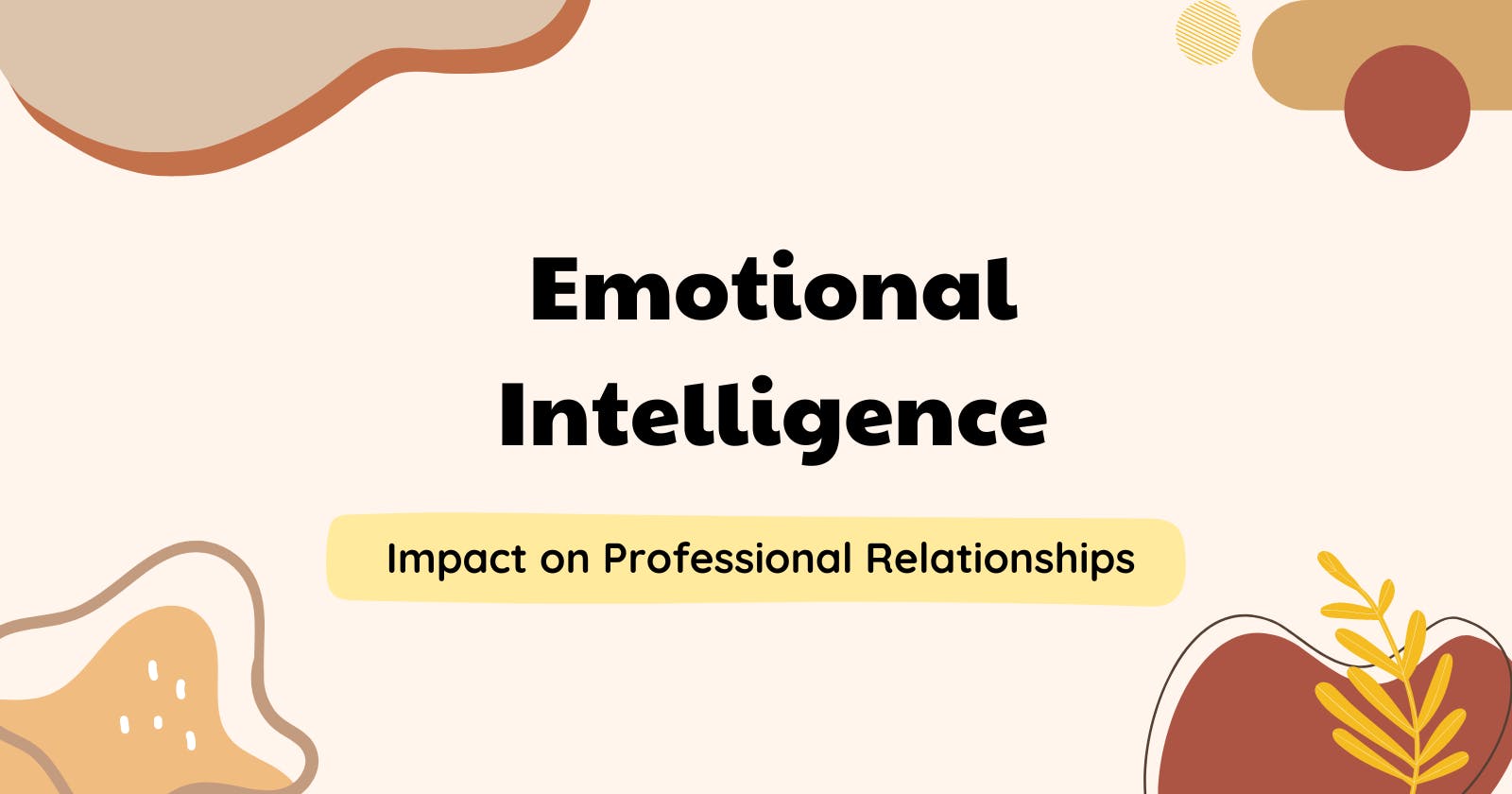Understanding Emotional Intelligence and Its Impact on Personal and Professional Relationships 💓
Introduction:
Welcome to our exploration of emotional intelligence! In this blog, we will delve into the concept of emotional intelligence (EI) and how it profoundly influences our personal and professional relationships. Emotional intelligence goes beyond traditional intelligence and plays a crucial role in understanding and managing emotions, both within ourselves and in others. Let's uncover the power of emotional intelligence and its far-reaching impact on our lives.
💡 What is Emotional Intelligence (EI)?
Emotional intelligence refers to the ability to recognize, understand, and manage our emotions, as well as to perceive and empathize with the emotions of others. It involves being in tune with our feelings and using them constructively to navigate social interactions effectively.
🤝 The Components of Emotional
Intelligence:
EI comprises several key components:
Self-Awareness:
Recognizing and understanding our emotions and their impact on our thoughts and actions. Self-Regulation: Managing emotions and reactions to maintain composure and adaptability in various situations. Empathy: Sensing and comprehending the emotions of others, showing understanding, and offering support. Social Skills: Cultivating effective communication, conflict resolution, and building strong relationships. 🌟 The Impact of Emotional Intelligence on Personal Relationships: Emotional intelligence is a cornerstone of successful personal relationships. People with high EI can:
Foster open communication and emotional intimacy in their relationships. Understand and respond to the needs and feelings of their partners with empathy. Manage conflicts with sensitivity and respect, leading to healthier resolutions. Build trust and create a positive emotional atmosphere in their relationships. 🏢 The Impact of Emotional Intelligence on Professional Relationships: In the workplace, emotional intelligence is a critical asset. Employees and leaders with high EI can:
Navigate workplace conflicts and collaborate effectively with colleagues. Communicate assertively and actively listen to foster better teamwork. Adapt to changes and handle stress more efficiently. Inspire and motivate team members, promoting a positive work environment. 🧘 Cultivating Emotional Intelligence: Developing emotional intelligence is an ongoing journey. Some strategies to cultivate EI include:
Practice mindfulness to become more self-aware and attuned to emotions. Engage in self-reflection to understand triggers and emotional patterns. Actively listen to others to enhance empathy and perspective-taking. Seek feedback and be open to constructive criticism to improve self-regulation. 🗝️ The Power of Emotional Intelligence in Leadership: Leaders with high EI can foster a positive organizational culture and promote employee well-being. They can build trust, inspire loyalty, and effectively manage conflicts, leading to higher employee engagement and productivity.
🌐 Cultural and Cross-Cultural Emotional Intelligence:
Emotional intelligence is also crucial in navigating cultural differences and building cross-cultural relationships. People with high cultural emotional intelligence can respect and appreciate diverse perspectives, norms, and communication styles. They demonstrate sensitivity to cultural cues, fostering mutual understanding and bridging cultural gaps.
🧠 Emotion Regulation and Resilience:
One of the core aspects of emotional intelligence is emotion regulation, which involves effectively managing and responding to emotions. Emotionally intelligent individuals can identify triggers and handle challenging situations with resilience, maintaining a sense of balance and composure.
💓 Empathy and Compassion:
Empathy, a key component of emotional intelligence, allows us to step into others' shoes, understand their emotions, and respond with compassion. Empathetic individuals create a supportive and caring environment, strengthening personal connections and nurturing healthier relationships.
⚖️ Conflict Resolution:
Effective conflict resolution is a hallmark of emotional intelligence. Individuals with high EI can navigate conflicts with diplomacy, active listening, and understanding. They seek win-win solutions, promoting harmony and cooperation among parties involved.
Conclusion:
As you conclude this journey into the realm of emotional intelligence, you have gained valuable insights into its impact on personal and professional relationships. Emotional intelligence empowers us to connect authentically with ourselves and others, fostering a more compassionate and understanding world. By cultivating emotional intelligence, you unlock the key to meaningful and fulfilling relationships, paving the way for personal growth and success in all aspects of life. Embrace emotional intelligence, and watch as your interactions become more profound, and your connections flourish with genuine empathy and kindness. Let emotional intelligence guide you to a brighter and more harmonious future! 💓
